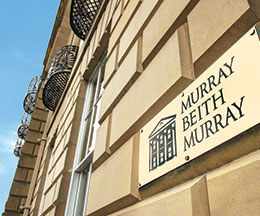 In what is an unprecedented time, the COVID-19 pandemic has seen an increase in worried individuals recognising a potential need to make a Will swiftly.
In what is an unprecedented time, the COVID-19 pandemic has seen an increase in worried individuals recognising a potential need to make a Will swiftly.
With additional ongoing pressure on family finances, people considering how their assets should be distributed after death may be tempted towards a DIY solution such as a Will template kit or a Will generated from automated prompt questions and responses online.
These self-made Wills are usually inexpensive and look simple to complete. But are these enticing individuals to become ‘penny wise, pound foolish’?
This blog considers ten potential basic flaws of DIY wills.
- Wrong law. The first flaw is that most will-drafting packages are intended for use in England and Wales. The law in Scotland is quite different and a will prepared using such a package may not be valid north of the Border.
- Signing defect. In order to be valid, a will must be signed in a prescribed manner. The rules are different in Scotland compared to England/Wales. A will that has not been properly signed may require additional legal steps to be taken following someone’s death, in order to establish the validity of the Will, which will incur additional expense. If the signing flaws are fatal, the estate will be dealt with as if there had been no Will at all (i.e. under the prescribed rules of “intestacy” where there is not a Will).
- Lack of flexibility. A will should be sufficiently flexible to cope with any change of circumstances, both happy and sad (such as the birth of a grandchild or the unexpected death of one of the beneficiaries under the Will). For example, if an adult child predeceases a parent, should his or her share pass down to the grandchildren or rather should it pass to the other siblings in the family? It is easy for a branch of the family to be inadvertently excluded in will-drafting packages, which rarely provide this flexibility.
- Unclear instructions. The terms of a self-written will can easily lead to confusion – e.g. does “£5,000 to Miles and Anne” mean £5,000 each or £2,500 each? Do assets left to “my children” include or exclude step-children? These types of confusion can easily lead to expensive legal disputes.
- Excluding assets. It is imperative that a will provides for the distribution of the whole of an estate, otherwise the laws of intestacy (see above) will govern who is entitled to these assets upon death. This may not reflect the deceased’s wishes and will increase the costs of administration.
- Family resentment. Today, many family situations involve second (or more) spouses, stepchildren etc. and such complex circumstances require to be carefully addressed. An off the shelf, will-drafting package is unlikely to provide this level of sophistication, potentially leading to some relatives being included or excluded inadvertently.
- Inadvertent cancellation. In order to achieve the comprehensive cancellation of any previous wills or expression of wishes, a new will has to be carefully drafted. There is a risk that using a self-written will to update wishes – on death – may not achieve this.
- Executors and guardians. Self-written wills often fail to appoint executors (those legally responsible for administering the estate) and guardians (those legally responsible for looking after the children). In that case, the appointments have to be made by the court, which means that the final choice is not made by the deceased and incurs additional cost for his/ her survivors.
- Inheritance tax. This has become a concern for many, particularly in light of rising property prices, while the tax system is also becoming increasingly complex, especially in relation to trusts. It is unlikely that wills which are self-prepared or from off-the-shelf packages can incorporate all of the available forms of inheritance tax mitigation.
- No way back. A will comes into effect on death. Accordingly, any flaws are only likely to be discovered on death, by which time – for obvious reasons – it may be too late for them to be corrected.
Contact us
Murray Beith Murray remains committed to providing you with a full legal service during these extraordinary circumstances. If you have any questions about the issues covered here, or if you would like to discuss estate planning with one of our solicitors, please call us on 0131 225 1200 or complete our contact form.
Murray Beith Murray was established in 1849, as advisors for generations of clients, committed to our values of integrity, expertise and trust. This aim and these values continue to this day as does our commitment to be here when you need us.
 In what is an unprecedented time, the COVID-19 pandemic has seen an increase in worried individuals recognising a potential need to make a Will swiftly.
In what is an unprecedented time, the COVID-19 pandemic has seen an increase in worried individuals recognising a potential need to make a Will swiftly. 